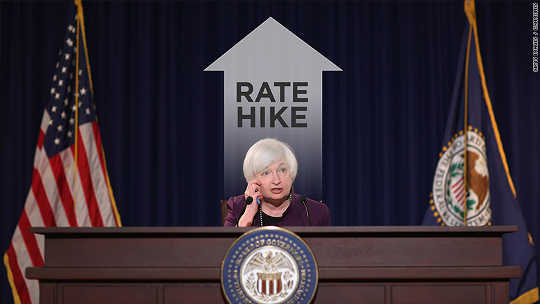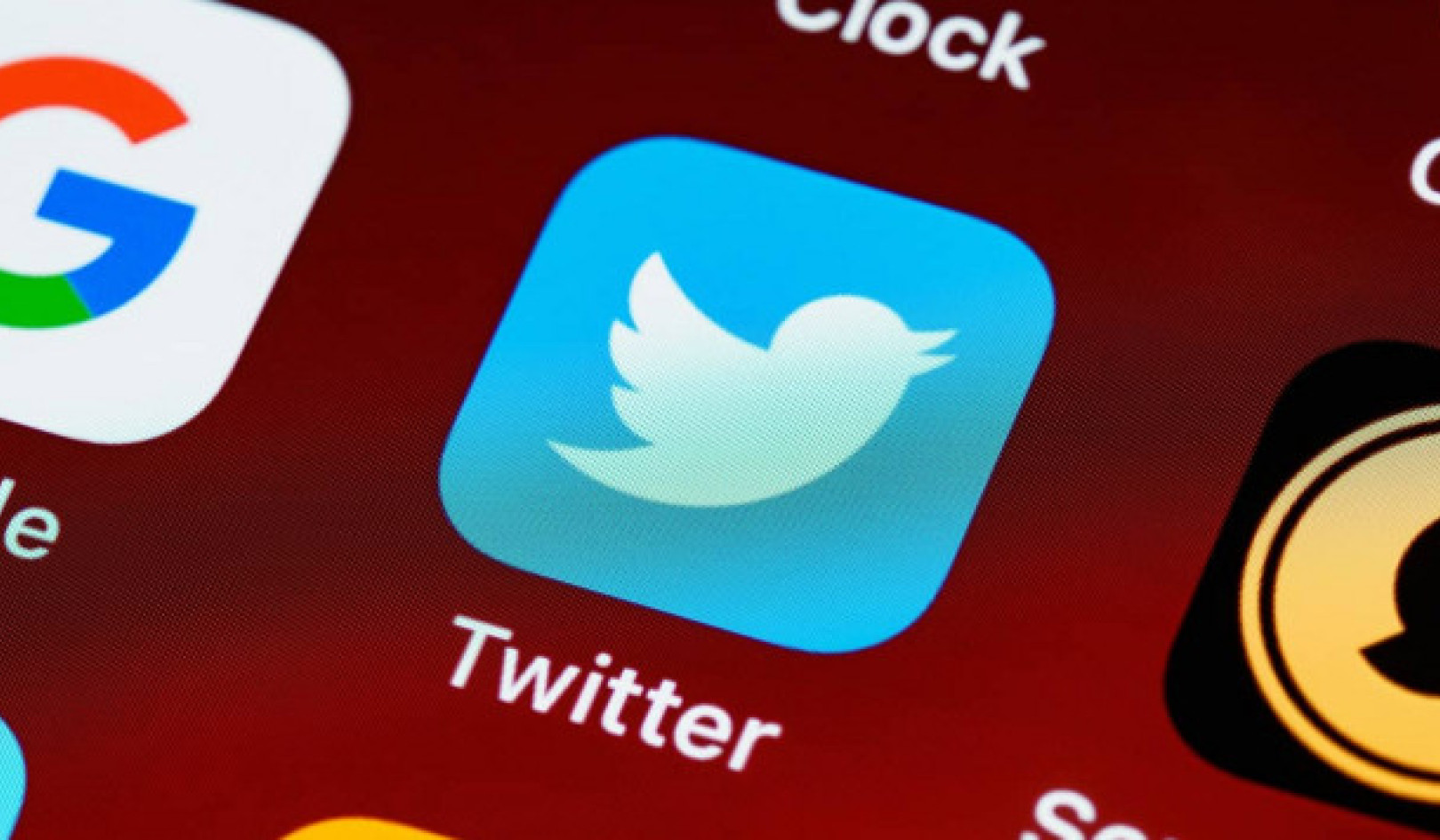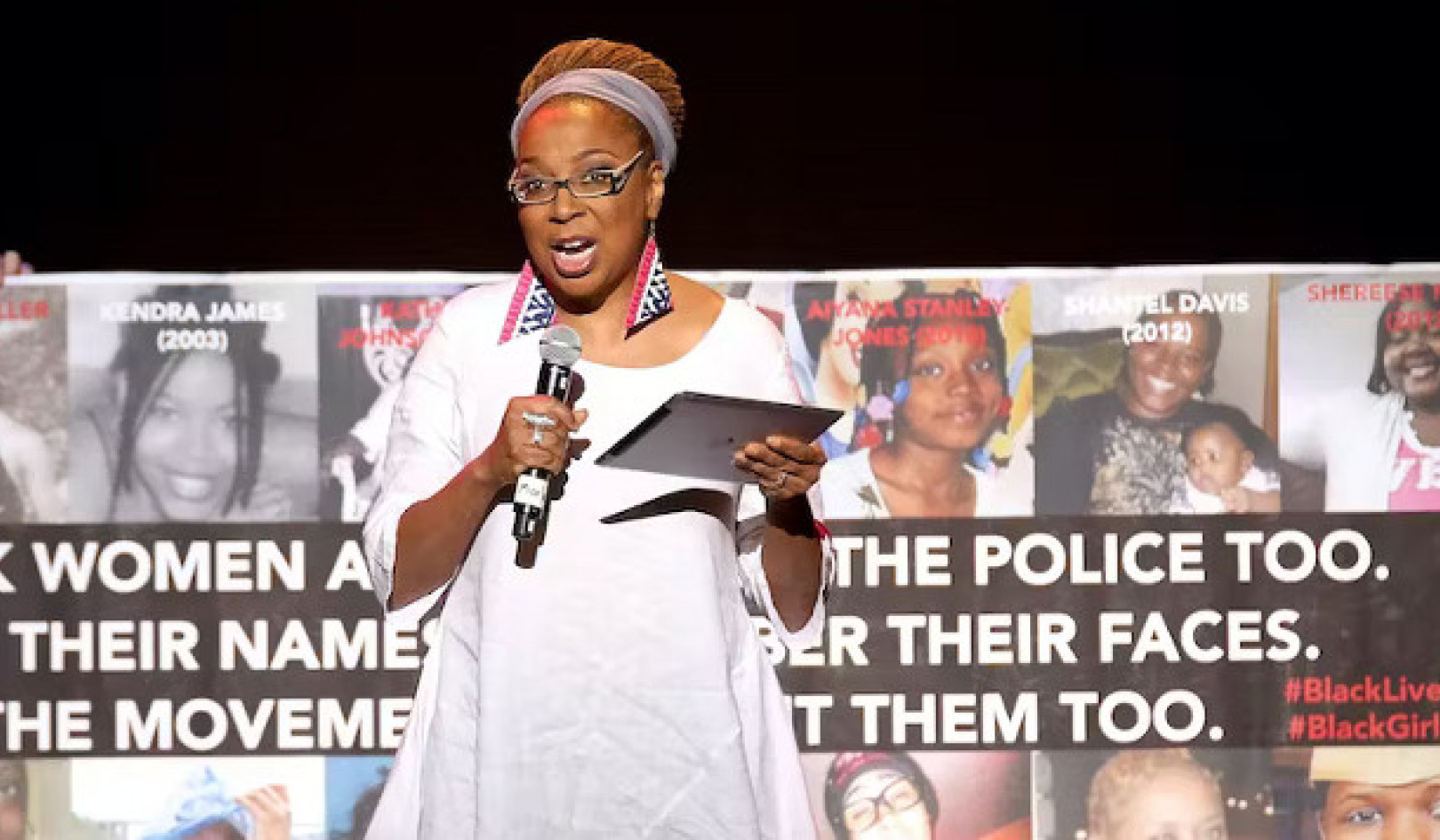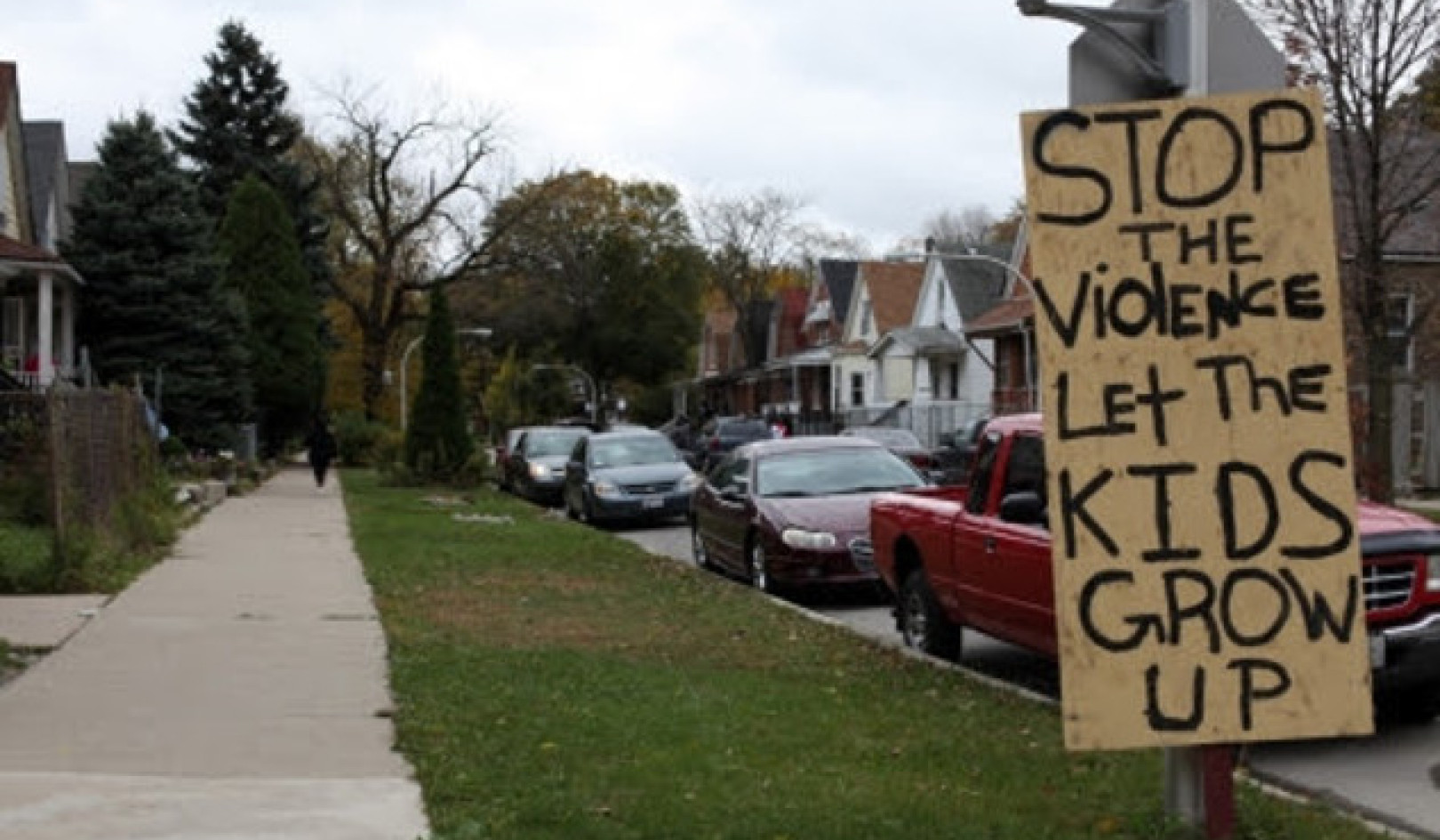
The Federal Reserve Board's Open Market Committee (FOMC) decided not to raise interest rates at its meeting last week. However, the FOMC also made clear that a rate hike was still an option for its June meeting.
The decision to put off a rate hike is good news, but the real question is why the Fed is even considering a rate hike. Just to remind everyone, the point of raising interest rates is to slow the economy. Higher interest rates discourage home buying, investment and act in other ways to slow the economy.
It is reasonable to raise rates if there is a threat that the economy is growing too rapidly and there is a risk that inflation could start spiraling higher. Does anyone really believe the economy is growing too fast right now?
The day after the Fed meeting, the Commerce Department reported the economy grew at just a 0.5 percent rate in the first quarter. Some anomalies drove this number lower, but if we add this to last quarter's 1.4 percent growth, we have an economy that has been growing at less than a 1 percent annual rate over the last half year. Is this too fast?
If we focus on the price side of the story, there is no better case. Inflation remains well below the Fed's 2 percent target. Over the last year, the inflation index targeted by the Fed has increased by less than 1.6 percent. And, we have to remember, according to Fed policy 2 percent is supposed to be an average, not a ceiling. This means that if the Fed were to stick to its own targets on inflation, then it should be prepared to allow the inflation rate to rise about 2 percent for a substantial period of time. Given that the inflation remains well below this target, and shows no indication of accelerating, what is the point of slamming on the brakes?
This is not an esoteric conversation for economists and policy wonks. This is the bread and butter that workers will see on the table over the next several years. While we have candidates making all sorts of promises about providing jobs and raising wages, the reality is that promises will all be worthless if the Fed decides that it has to slow the economy.
Even a great infrastructure program or tax cut plan that a president puts forward to boost the economy, will not be able to create jobs if the Fed decides that the economy already has too many jobs. The Fed can keep raising interest rates until it has reduced the rate of job creation to a level with which it is comfortable.
And wages follow jobs. In a weak labor market, most workers won't have enough bargaining power to secure wage gains. Here also the latest data is quite striking. The Labor Department reported on Friday that its Employment Cost Index (ECI), a broad measure of labor compensation, actually has slowed slightly, rising by just 1.9 percent over the last year. If workers are going to see substantial gains in living standards, the ECI and other measures of wages and compensation will have to rise more rapidly.
This brings us back to the presidential campaigns. It is a bit bizarre that the Fed is openly debating whether it should raise interest rates to slow the pace of job creation and dampen wage growth even as candidates are running around the country promising to do the opposite. It is almost as though they don't know about the Fed.
There are some exceptions. Sen. Ted Cruz has promised to return the country to the gold standard. This would put a stranglehold on monetary policy and prevent the Fed from doing anything to boost the economy out of a downturn, like the 2008 crash.
Sen. Bernie Sanders has spoken about the Fed and made a point of criticizing its decision to hike interest rates in December, but it has not been a major theme of his campaign. It doesn't appear that Secretary Hillary Clinton has spoken about the Fed at all.
It seems reasonable to expect that candidates for president would tell the public about their attitude toward the Fed and in particular what sort of person they would appoint to be governors. There are already two vacant positions on the seven member board of governors. In addition, Janet Yellen will come up for reappointment in the first year of the next president's term.
Voters should know the president's priorities in filling these positions. It will hugely affect their ability to carry through their economic agenda. Pretending the Fed does not exist is not serious economic policy. The public has a right to expect better.
About the Author
 Dean Baker is co-director of the Center for Economic and Policy Research in Washington, DC. He is frequently cited in economics reporting in major media outlets, including the New York Times, Washington Post, CNN, CNBC, and National Public Radio. He writes a weekly column for the Guardian Unlimited (UK), the Huffington Post, TruthOut, and his blog, Beat the Press, features commentary on economic reporting. His analyses have appeared in many major publications, including the Atlantic Monthly, the Washington Post, the London Financial Times, and the New York Daily News. He received his Ph.D in economics from the University of Michigan.
Dean Baker is co-director of the Center for Economic and Policy Research in Washington, DC. He is frequently cited in economics reporting in major media outlets, including the New York Times, Washington Post, CNN, CNBC, and National Public Radio. He writes a weekly column for the Guardian Unlimited (UK), the Huffington Post, TruthOut, and his blog, Beat the Press, features commentary on economic reporting. His analyses have appeared in many major publications, including the Atlantic Monthly, the Washington Post, the London Financial Times, and the New York Daily News. He received his Ph.D in economics from the University of Michigan.
Recommended Books
Getting Back to Full Employment: A Better Bargain for Working People
by Jared Bernstein and Dean Baker.
 This book is a follow-up to a book written a decade ago by the authors, The Benefits of Full Employment (Economic Policy Institute, 2003). It builds on the evidence presented in that book, showing that real wage growth for workers in the bottom half of the income scale is highly dependent on the overall rate of unemployment. In the late 1990s, when the United States saw its first sustained period of low unemployment in more than a quarter century, workers at the middle and bottom of the wage distribution were able to secure substantial gains in real wages.
This book is a follow-up to a book written a decade ago by the authors, The Benefits of Full Employment (Economic Policy Institute, 2003). It builds on the evidence presented in that book, showing that real wage growth for workers in the bottom half of the income scale is highly dependent on the overall rate of unemployment. In the late 1990s, when the United States saw its first sustained period of low unemployment in more than a quarter century, workers at the middle and bottom of the wage distribution were able to secure substantial gains in real wages.
Click here for more info and/or to order this book on Amazon.
The End of Loser Liberalism: Making Markets Progressive
by Dean Baker.
 Progressives need a fundamentally new approach to politics. They have been losing not just because conservatives have so much more money and power, but also because they have accepted the conservatives' framing of political debates. They have accepted a framing where conservatives want market outcomes whereas liberals want the government to intervene to bring about outcomes that they consider fair. This puts liberals in the position of seeming to want to tax the winners to help the losers. This "loser liberalism" is bad policy and horrible politics. Progressives would be better off fighting battles over the structure of markets so that they don't redistribute income upward. This book describes some of the key areas where progressives can focus their efforts in restructuring the market so that more income flows to the bulk of the working population rather than just a small elite.
Progressives need a fundamentally new approach to politics. They have been losing not just because conservatives have so much more money and power, but also because they have accepted the conservatives' framing of political debates. They have accepted a framing where conservatives want market outcomes whereas liberals want the government to intervene to bring about outcomes that they consider fair. This puts liberals in the position of seeming to want to tax the winners to help the losers. This "loser liberalism" is bad policy and horrible politics. Progressives would be better off fighting battles over the structure of markets so that they don't redistribute income upward. This book describes some of the key areas where progressives can focus their efforts in restructuring the market so that more income flows to the bulk of the working population rather than just a small elite.
Click here for more info and/or to order this book on Amazon.
*These books are also available in digital format for "free" on Dean Baker's website, Beat the Press. Yea!
The Fed's Urge to Raise Interest Rates
Dean Baker
Truthout, May 2, 2016
See article on original site
The Federal Reserve Board's Open Market Committee (FOMC) decided not to raise interest rates at its meeting last week. However, the FOMC also made clear that a rate hike was still an option for its June meeting.
The decision to put off a rate hike is good news, but the real question is why the Fed is even considering a rate hike. Just to remind everyone, the point of raising interest rates is to slow the economy. Higher interest rates discourage home buying, investment and act in other ways to slow the economy.
It is reasonable to raise rates if there is a threat that the economy is growing too rapidly and there is a risk that inflation could start spiraling higher. Does anyone really believe the economy is growing too fast right now?
The day after the Fed meeting, the Commerce Department reported the economy grew at just a 0.5 percent rate in the first quarter. Some anomalies drove this number lower, but if we add this to last quarter's 1.4 percent growth, we have an economy that has been growing at less than a 1 percent annual rate over the last half year. Is this too fast?
If we focus on the price side of the story, there is no better case. Inflation remains well below the Fed's 2 percent target. Over the last year, the inflation index targeted by the Fed has increased by less than 1.6 percent. And, we have to remember, according to Fed policy 2 percent is supposed to be an average, not a ceiling. This means that if the Fed were to stick to its own targets on inflation, then it should be prepared to allow the inflation rate to rise about 2 percent for a substantial period of time. Given that the inflation remains well below this target, and shows no indication of accelerating, what is the point of slamming on the brakes?
This is not an esoteric conversation for economists and policy wonks. This is the bread and butter that workers will see on the table over the next several years. While we have candidates making all sorts of promises about providing jobs and raising wages, the reality is that promises will all be worthless if the Fed decides that it has to slow the economy.
Even a great infrastructure program or tax cut plan that a president puts forward to boost the economy, will not be able to create jobs if the Fed decides that the economy already has too many jobs. The Fed can keep raising interest rates until it has reduced the rate of job creation to a level with which it is comfortable.
And wages follow jobs. In a weak labor market, most workers won't have enough bargaining power to secure wage gains. Here also the latest data is quite striking. The Labor Department reported on Friday that its Employment Cost Index (ECI), a broad measure of labor compensation, actually has slowed slightly, rising by just 1.9 percent over the last year. If workers are going to see substantial gains in living standards, the ECI and other measures of wages and compensation will have to rise more rapidly.
This brings us back to the presidential campaigns. It is a bit bizarre that the Fed is openly debating whether it should raise interest rates to slow the pace of job creation and dampen wage growth even as candidates are running around the country promising to do the opposite. It is almost as though they don't know about the Fed.
There are some exceptions. Sen. Ted Cruz has promised to return the country to the gold standard. This would put a stranglehold on monetary policy and prevent the Fed from doing anything to boost the economy out of a downturn, like the 2008 crash.
Sen. Bernie Sanders has spoken about the Fed and made a point of criticizing its decision to hike interest rates in December, but it has not been a major theme of his campaign. It doesn't appear that Secretary Hillary Clinton has spoken about the Fed at all.
It seems reasonable to expect that candidates for president would tell the public about their attitude toward the Fed and in particular what sort of person they would appoint to be governors. There are already two vacant positions on the seven member board of governors. In addition, Janet Yellen will come up for reappointment in the first year of the next president's term.
Voters should know the president's priorities in filling these positions. It will hugely affect their ability to carry through their economic agenda. Pretending the Fed does not exist is not serious economic policy. The public has a right to expect better.
About the Author
 Dean Baker is co-director of the Center for Economic and Policy Research in Washington, DC. He is frequently cited in economics reporting in major media outlets, including the New York Times, Washington Post, CNN, CNBC, and National Public Radio. He writes a weekly column for the Guardian Unlimited (UK), the Huffington Post, TruthOut, and his blog, Beat the Press, features commentary on economic reporting. His analyses have appeared in many major publications, including the Atlantic Monthly, the Washington Post, the London Financial Times, and the New York Daily News. He received his Ph.D in economics from the University of Michigan.
Dean Baker is co-director of the Center for Economic and Policy Research in Washington, DC. He is frequently cited in economics reporting in major media outlets, including the New York Times, Washington Post, CNN, CNBC, and National Public Radio. He writes a weekly column for the Guardian Unlimited (UK), the Huffington Post, TruthOut, and his blog, Beat the Press, features commentary on economic reporting. His analyses have appeared in many major publications, including the Atlantic Monthly, the Washington Post, the London Financial Times, and the New York Daily News. He received his Ph.D in economics from the University of Michigan.
Recommended Books
Getting Back to Full Employment: A Better Bargain for Working People
by Jared Bernstein and Dean Baker.
 This book is a follow-up to a book written a decade ago by the authors, The Benefits of Full Employment (Economic Policy Institute, 2003). It builds on the evidence presented in that book, showing that real wage growth for workers in the bottom half of the income scale is highly dependent on the overall rate of unemployment. In the late 1990s, when the United States saw its first sustained period of low unemployment in more than a quarter century, workers at the middle and bottom of the wage distribution were able to secure substantial gains in real wages.
This book is a follow-up to a book written a decade ago by the authors, The Benefits of Full Employment (Economic Policy Institute, 2003). It builds on the evidence presented in that book, showing that real wage growth for workers in the bottom half of the income scale is highly dependent on the overall rate of unemployment. In the late 1990s, when the United States saw its first sustained period of low unemployment in more than a quarter century, workers at the middle and bottom of the wage distribution were able to secure substantial gains in real wages.
Click here for more info and/or to order this book on Amazon.
The End of Loser Liberalism: Making Markets Progressive
by Dean Baker.
 Progressives need a fundamentally new approach to politics. They have been losing not just because conservatives have so much more money and power, but also because they have accepted the conservatives' framing of political debates. They have accepted a framing where conservatives want market outcomes whereas liberals want the government to intervene to bring about outcomes that they consider fair. This puts liberals in the position of seeming to want to tax the winners to help the losers. This "loser liberalism" is bad policy and horrible politics. Progressives would be better off fighting battles over the structure of markets so that they don't redistribute income upward. This book describes some of the key areas where progressives can focus their efforts in restructuring the market so that more income flows to the bulk of the working population rather than just a small elite.
Progressives need a fundamentally new approach to politics. They have been losing not just because conservatives have so much more money and power, but also because they have accepted the conservatives' framing of political debates. They have accepted a framing where conservatives want market outcomes whereas liberals want the government to intervene to bring about outcomes that they consider fair. This puts liberals in the position of seeming to want to tax the winners to help the losers. This "loser liberalism" is bad policy and horrible politics. Progressives would be better off fighting battles over the structure of markets so that they don't redistribute income upward. This book describes some of the key areas where progressives can focus their efforts in restructuring the market so that more income flows to the bulk of the working population rather than just a small elite.
Click here for more info and/or to order this book on Amazon.
*These books are also available in digital format for "free" on Dean Baker's website, Beat the Press. Yea!





























